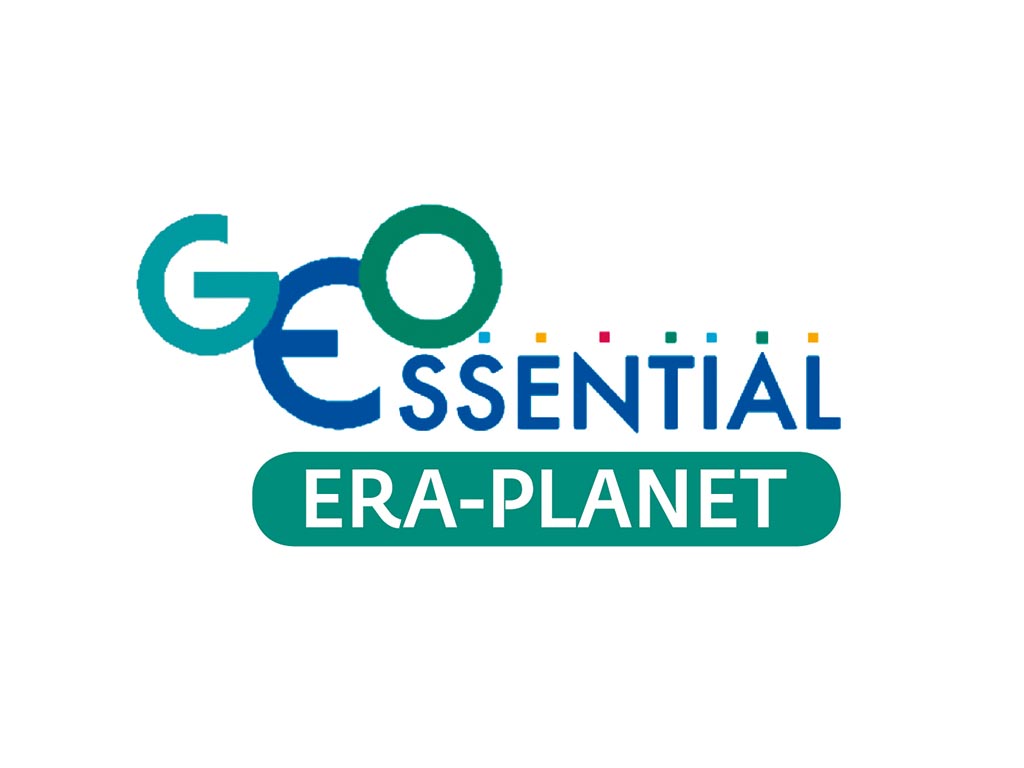
Abstract of the project
When defining SDGs or other integrated environmental indicators, the temptation to reinvent is great instead of using existing initiatives and available data, for example, through the Global Earth Observation System (GEOSS) or Copernicus services. From the point of view of information, communication and technology, interoperability and standardization of data are essential to improve access and exchange of data. Efforts are being made to monitor the state of the environment with essential variables (EVs), for example in the area of biodiversity, water and climate. The EVs are defined by ConnectinGEO as “a minimum set of variables that determine the state and developments of the system, are crucial to predict the evolution of the system and allow to define metrics that measure the trajectory of the system”.
GEOEssential is one of the four projects financed by the output of the Joint International Call organized within the ERA-PLANET program with the participation of all the Consortium partners.
ERA-PLANET is a program funded by Horizon 2020.

The expected impact is to strengthen European leadership in the next GEO 2015-2025 work plan.
GEOEssential addresses the need for reliable sources of data and information to monitor progress on environmental conditions towards policy goals. The project will demonstrate the generality of the concept of Essential Variables in the GEO Social Benefit Areas. It will create interdisciplinary workflows to assess, predict and monitor natural resources to inform through environmental policies of Earth observations such as sustainable development goals. Existing structures and platforms will be analyzed in order to identify substantial gaps and synergies to address the needs of environmental policy in agriculture, soil, water, biodiversity, energy, light and raw materials.
GEOEssential addresses the problem of the need for reliable sources of data and information to monitor the progress of environmental conditions for the achievement of policy objectives. The project will demonstrate the feasibility of essential variables in the areas of benefit to the GEO company. It will create interdisciplinary workflows to assess, predict and monitor natural resources to inform sustainable development goals through Earth observations. Existing structures and platforms will be analyzed in order to identify substantial gaps and synergies to address the needs of environmental policy in agriculture, soil, water, biodiversity, energy, light and raw materials. Solutions for improvements will be provided in collaboration with the GEO and Copernicus programs.
The methodology proposed in GEOEssential goes beyond the results of the ConnectinGEO project which identified the main gaps in the definition of EV GEO. The main idea is to build demonstration workflows that will use electric vehicles served by the GEO infrastructure to derive policy-relevant indicators. The GEOEssential project is addressing Phase 2 of the ERA-Planet (Resource Efficiency and Environmental Management) project but is also linked to the other three Phases via a common data infrastructure.
GEOEssential brought together a strong team of experts in various fields of Earth observation and their applications, 14 participants from 7 countries.
This approach is based on the methodology proposed by the H2020 ConnectinGEO project (GEO Link 2016a, b, c). The Knowledge Base Infrastructure will be connected and based on the GEOSS Common Infrastructure (GCI) as well as the Copernicus Services Data Hub. Furthermore, new sources of socio-economic data will be used to support the implementation of national, European and international environmental policies.
GEOEssential has several specific objectives:
Improve existing knowledge base infrastructure on electric vehicles on a global, pan - European and national scale following the levels of the Copernicus categories;
Address the identified gaps in the definition and selection of electric vehicles connected to the aforementioned SBAs in collaboration with the respective communities of practice, stakeholders and identified users (both intermediate and final);
Contribute to in situ data and coordination of infrastructures in Europe (eg ENEON);
Improve the availability of electric vehicle services from the GEOSS and Copernicus platforms;
Assess the potential of synergies between the terrain (in situ, including citizen science, national monitoring, etc.) and satellite observations for calibration, validation, data integration and quality control;
Develop specific data workflows and best practices to improve interoperability e
Build the GEOEssential EVs Hub with a dashboard from EVs to SDGs using the developed workflows; And
Simplify and promote the use of electric vehicles in EO communities of practice and beyond, for example by creating a Massive Online Open Course (MOOC) on EO activities.
ARISTOTELIO PANEPISTIMIO THESSALONIKIS, Greece
CENTRO NACIONAL DE INFORMACION GEOGRAFICA, Spain
CENTRO DE INVESTIGACION ECOLOGICA YAPLICACIONES FORESTALES, Spain
FORSCHUNGSZENTRUM JÜLICH GMBH, Germany
HELMHOLTZ-ZENTRUM POTSDAM DEUTSCHES GEOFORSCHUNGSZENTRUM, Germany
INTERNATIONALES INSTITUT FUER ANGEWANDTE SYSTEM ANALYSE, Austria
MUSEUM FUR NATURKUNDE - LEIBNIZ-INSTITUT FUR EVOLUTIONS- UND BIODIVERSITATSFORSCHUNG AN DER HUMBOLDT-UNIVERSITAT ZU BERLIN, Germany
SENCKENBERG GESELLSCHAFT FUR NATURFORSCHUNG, Germany
SPACE RESEARCH INSTITUTE, Ukraine
HELMHOLTZ-ZENTRUM FUER UMWELTFORSCHUNG GMBH, Germany
UNIVERSITY OF CALABRIA, Italy
UNIVERSITE DE GENEVE, Switzerland
UNIVERSITY OF PADUA, Italy
P. Blonda, S. Vicar, S. Maggi; C. Tarantino, M. Adamo (Rende secondary office); P. Mazzetti; M. Santoro; F. Roncella (Sesto Fiorentino branch office);
